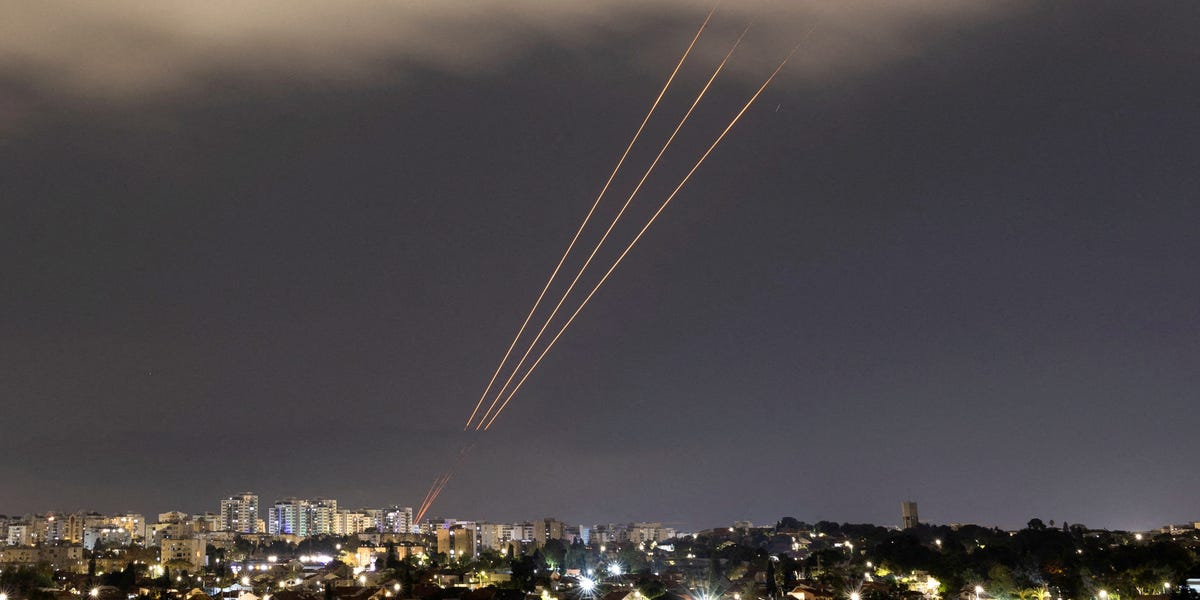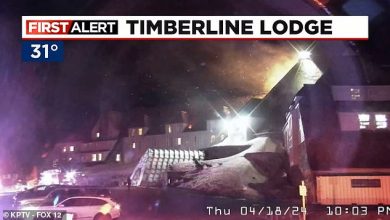Iran, Israel Dragged Shadow War Out of Dark. It’s Now More Dangerous

A decades-long shadow war between Iran and Israel has been brought to light.
For years, the two bitter enemies have relied on strikes in other countries, secret assassinations and proxy forces to trade blows in a simmering — but deadly — conflict. Iran’s unprecedented attack on Israel this past weekend has significantly changed the dynamics of this conflict, which is now more dangerous.
A senior US defense official told reporters on Sunday that “this was the first ever direct attack on Israel from Iranian soil,” calling the barrage “reckless” and warning that it “risked drag the region into a wider conflict.
Fierce animosity between Iran and Israel dates back to the 1979 Islamic Revolution, which ushered in a theocratic regime in Tehran that had long opposed Israel’s existence and vowed to ultimately destroy the state.
Over the years, Iran has supported, financed and armed proxy forces across the Middle East, such as Hezbollah in Lebanon and Hamas in the Gaza Strip, and relied on them to attack Israeli interests. . This essentially allowed Tehran to indirectly strike Israel.
A photo taken from the village of Alma al-Shaab in southern Lebanon shows smoke rising from an Israeli outpost after a rocket attack by Lebanese Hezbollah on April 6, 2024. Photo by KAWNAT HAJU/AFP via Getty Images
Israel, for its part, has carried out airstrikes against Iranian assets abroad, including in Iraq and Syria, in an effort to limit Tehran’s ability to funnel deadly weapons across the Middle East to its forces. proxies, particularly those close to Israeli borders.
Jonathan Lord, a former political-military analyst at the Pentagon, told Business Insider that Israel has had limited tactical success in this space: “so over time, these strikes have become more public and less covert, and certainly, we We kind of saw that. grow and grow.”
Israel also attempted to sabotage Iran’s nuclear program, believing it to be an existential threat. He has assassinated Iranian nuclear scientists and launched cyberattacks on Tehran facilities. This murky conflict has also given rise to retaliatory exchanges at sea, including Iran’s recent seizure of an Israel-linked cargo ship in the Strait of Hormuz.
Amid persistent tensions, the two enemies managed to avoid direct military confrontation, but this is no longer the case.
An “escalation” in the shadow war
On April 1, an Israeli airstrike on an Iranian diplomatic facility in Damascus, Syria, killed several military officials, including two generals from the Islamic Revolutionary Guard Corps, responsible for supporting Iran’s proxy network, the Self -called “Axis of Resistance”.
Emergency and security personnel gather at the site of strikes that hit a building next to the Iranian embassy in Damascus, the Syrian capital, April 1, 2024. MAHER AL MOUNES/AFP via Getty Images
The brazen strike marked a significant moment in the shadow war between Israel and Iran, distinguishing itself from past Israeli actions in Syria because it targeted an Iranian government-affiliated site and high-ranking figures. Tehran vowed to retaliate, and nearly two weeks later, it did.
Iran and its proxies have launched more than 300 one-way attack drones, cruise missiles and ballistic missiles at Israel – in an unprecedented large-scale attack. Almost all of Iran’s munitions have been shot down by Israel and partner forces in the region, including the United States.
“Clearly, firing these missiles and drones from Iranian territory directly at Israel constitutes an escalation” of the conflict, retired Gen. Joseph Votel, who oversaw U.S. military operations in the Middle East as Commander of US Central Command.
One country attacking the other’s country, he added, had usually gone unnoticed.
“It’s been broken, and it’s been changed here,” Votel said, noting that what normally tends to play out behind the scenes has now been “much more in the spotlight.”
A police officer inspects the remains of a rocket booster near Arad, Israel, April 14, 2024. REUTERS/Christophe Van Der Perre
Israel has vowed its own retaliation for the Iranian attack and appears to be planning its next move, despite some of its Western partners calling on the country to show restraint. Any Israeli military response to the attack risks an all-out confrontation with Iran and could plunge the region into even more violence.
“We are on the edge of the precipice and we have to move away from it,” European Union foreign policy chief Josep Borrell told Spanish radio Onda Cero this week, stressing that “we have to put the brakes on and reverse .”
Maj. Gen. Hossein Salami, commander of the IRGC, suggested that regardless of whether Israel attacks Iran or its assets abroad, Tehran would retaliate directly as it did last weekend, rather than rely on his representatives, as he has always done. But it remains to be seen whether such remarks will actually translate into action.
In the future, the long-standing shadow war has been widely exposed. Neither side is concerned with hiding attribution for their actions anymore, Lord said, but everything is now more about establishing deterrence and limiting the other side’s activities.
“There was nothing dark about what we saw this weekend,” Lord said. What was once kept in the shadows, he said, is no longer so since it became so obvious “and the list of usual suspects that could be involved has been reduced to two: Iran and Israel.”
businessinsider




